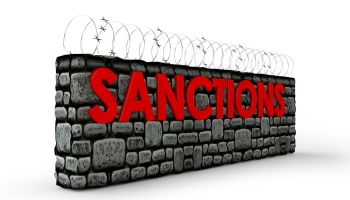“Don’t Stop Believing” *
With all the bad news, AML community appears unified
- |
- Written by John Byrne
- |
- Comments: DISQUS_COMMENTS
 With a nod to pop music, veteran John Byrne’s blog scans the anti-laundering and anti-terrorism world. John pierces silliness and inconsistency, and strongly believes in private-public partnership.
With a nod to pop music, veteran John Byrne’s blog scans the anti-laundering and anti-terrorism world. John pierces silliness and inconsistency, and strongly believes in private-public partnership.
Followers of this blog know my view that the lack of effective communication hurts our collective goal—preventing, detecting, and reporting money laundering activities. The problem seems to be responding to those on the sidelines—media, legislators, and the general public—who all want their proverbial pound of flesh but don’t think of the ramifications.
I have been around long enough to know that policymakers move on, once their proposal takes shape (and the heck with unintended consequences). The press, for its part, can be extremely lazy when it comes to reporting or opining on the potential impact of those proposals.
Several recent events come to mind—a conference of joint public/private partners and the debate on sanctions. Again, if you follow this blog you know I won’t provide solutions, but will continue to plead for dialogue.
Can we still cooperate?
During the West Coast Anti-Money Laundering (WCAML) Forum in San Francisco earlier in May, the audience and panelists grappled with a number of disparate issues.
While it correctly bars press coverage and participants to report on the debates, I feel I am free to say that the group is connected on the need to work together to solve the challenges in money laundering, financial crime, and sanctions that impact all of us.
Also, several government representatives told me they share my concern about the current environment where personal liability is an active threat and the proper goal of all AML professionals—to effectively attack money laundering—is secondary to regulatory fines and penalties.
Discussions on the challenges of banking marijuana businesses, virtual currency risks, and the plethora of electronic crime all had a common theme—AML professionals want to tackle these issues together and to avoid bureaucratic hurdles.
The question remains, are we willing to leave our egos at the door and actually work for the greater good—money laundering deterrence?
My talk with AML professionals tells me the answer is “yes.”
Sanctions: Do they work and does it matter?
AML professionals are, in some way, the first line of defense for sanctions compliance. You cannot question the premise, you are simply required to stop a transaction or capture the same for government review.
However, it is fair to ask—do sanctions work? And can we or should we care?
Well, I believe we should care since all AML related responsibilities impact individuals and the firms or agencies they represent.
In the United States, the Office of Foreign Assets Control (OFAC) enforces sanctions against countries or individuals based on national security responses. Understand that a decision by the U.S. to “sanction” a country is not arrived at without active debate and discussion.
So, do we care if sanctions work? With a strict liability standard for violating any requirements, a financial institution does not have the luxury of debating efficacy. However, as members of the AML community (and of general society) we do.
I do try to be objective on regulatory and legal requirements. It still drives me crazy that some financial institutions complain about being part of law enforcement, 30 years after we resolved this question. But questioning sanctions remains fair.
AML professionals need to explain to senior management or boards of directors about the impact and parameters regarding sanctions on their institutions. So, it is incumbent upon the government to explain how sanctions advance foreign policy and respond to questions.
Recent press reports on sanctions related to Russia have started to analyze whether the impact will be on the government or on the citizenry. Sadly, in 2014 any objective analysis seems to be lost—it depends on your political persuasion as to how effective a sanction may be. My view is this—sanctions do hurt governments. But how much does depend on each situation.
In a recent example, Treasury Under Secretary for Terrorism and Financial Intelligence David Cohen, addressing Russia, said “From the very outset of Russia’s illegitimate and unlawful actions in Ukraine, we have been clear: The United States, acting on its own and alongside our international partners, will impose increasing costs on Russia if it persists in its efforts to destabilize Ukraine and will hold Russia accountable for its provocative actions.”
The costs will harm the target and of that there can be no debate—a broader view of sanction impact I leave to foreign policy experts.
* “Don’t Stop Believing” has been the butt of music jokes for some time, but Chicago White Sox fans adopted this “anthem” and the last “Sopranos” episode used this Journey song.
Tagged under Compliance, Blogs, AML & Fraud, BSA/AML,














